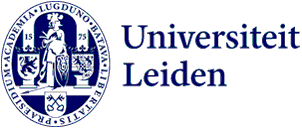FAQ Programme
Below you can find the most frequently asked questions and answers provided by staff and students themselves.
If your question is not in this list, feel free to send an email to the staff or the student ambassadors. We would love to hear from you.
Short explanation of frequently used terms
- Honours college: An extracurricular programme of 30 EC spread out over 2 or 2.5 years. There are different tracks (e.g., the Science, Society and Self track), of which you pick one.
- Honours track or HC-track: The programme you follow within your Honours College. Some tracks are limited to a specific study (i.e., Law, Science, or Medicine); others are organised by a specific faculty and can be taken by all students. Our track is open for all students from Leiden University.
- Honours Academy (HA): The umbrella organisation that coordinates all Honours activities of the different faculties. The HA also organises the Honours Classes.
- FSW Honours Elective Modules: During the programme, you select at least one of the Honours Elective Modules. These are 4-EC courses specifically for students within the Science, Society and Self programme.
- Honours Class: A short interdisciplinary and interactive course of 5-EC. These courses may be part of your Honours programme, or some of them may be taken as a regular student (if you do not choose to do the full 30 EC Honours programme). These classes are organised by the Honours Academy. An Honours Class can be taken by Honours students from all bachelor’s degree programmes at Leiden University. You choose a minimum of one and a maximum of three Honours Classes throughout the Science, Society and Self programme (years 2 and 3).
The kinds of courses available to you depends largely on which Honours College track you choose. Check out the entire programme. Some components are mandatory, but for most components you can choose between several electives, creating your own, unique Honours journey. Every Honours student takes at least one Honours Class; this is independent of which Honours College you apply to (Check out the list of Honours Classes).
Every Honours course has a different focus and therefore different kinds of assignments. These can range from making a short film, writing an essay, or creating a concrete intervention for policymakers. You are generally expected to prepare for workgroups by doing some advance reading or via other media, but most classes do not expect a constant flow of assignments from you. Graded assignments are usually pre-announced in the Prospectus as part of the course description. You will rarely come across exams during the programme.
This depends very much on your own study speed and method. In general, you can expect between 2-8 hours weekly per class that you take. Classes usually take 2-3 hours, and you are expected to prepare for them a little bit. In addition, you have the course assignments, which you can often structure flexibly throughout the course. So some weeks can be less work-heavy than others. Exam periods are kept less busy whenever possible, to ensure that students have time to study for exams.
The grading system depends on the type of course/class. Sessions from Personal and Professional Development and FSW Honours Elective Modules (i.e., those specific to the Science, Society and Self track) are graded as Pass/Fail or Pass/Good/Excellent. Honours Classes are often graded using the Dutch grading system, from 1-10.
If your average bachelor grade is below 7.0 on graduation then you unfortunately cannot receive the official Honours Certificate. However, the Honours activities that you have completed will still appear on your bachelor’s transcript.
Please note that this rarely happens. Because of the personal coaching offered by the Honours College FSW, we can usually identify problems at an early stage. Your coach will talk to you about what might help you to get higher grades and also discuss whether the Honours programme is feasible for you (because we don’t want you to fail your bachelor’s programme).
The costs of participating in the Honours College FSW are covered by the Faculty of Social and Behavioural Sciences. This means there are no extra fees. The university is happy to invest in your development; in return, it expects you to be committed and dedicated, so that you complete the programme successfully. You may sometimes have to pay for extra materials, such as an extra textbook. This is rare, however; teachers usually provide you with free alternatives.
